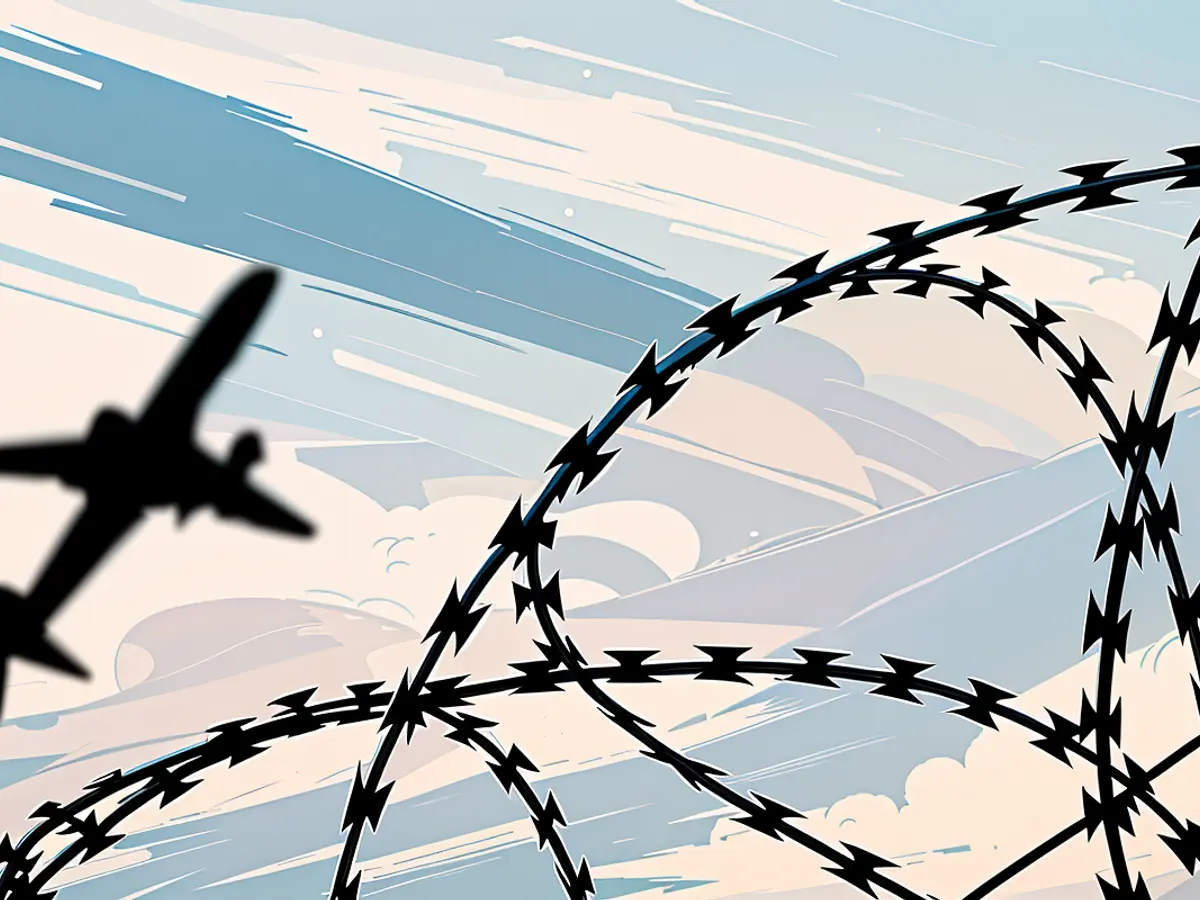A significant number express a desire to be relocated to Syria and Afghanistan.
Following the IS-inspired assault in Solingen that left three dead, political discourse revolves around addressing migration concerns. An RTL/ntv poll reveals a significant bulk supports a tougher approach, although this doesn't extend to an outright ban on admitting Syrians and Afghans.
Shortly after the Islamist-driven attack by a Syrian on the city festival in Solingen, CDU leader Friedrich Merz voiced his concerns. He pressured the federal government for consequences, met with Federal Chancellor Olaf Scholz, and even proposed declaring a "state of emergency." Should this happen, Germany would temporarily halt accepting refugees, according to Merz. The AfD deemed this response inadequate, labeling it late and insufficient. The public, however, had varied responses, as per a poll conducted by Forsa.
The poll found that an overwhelming 87% deemed it appropriate to expel criminal Syrians and Afghans to their homelands. Logistically, deportation to these regions is challenging due to ongoing violent conflicts and human rights violations. The Taliban in Afghanistan and the Assad regime in Syria pose threats to those in these countries. However, recent RTL investigations have cast doubt upon the current classification, as many Afghans with protected status still travel to Afghanistan regularly for vacations.
Minister of the Interior Nancy Faeser had already considered revising deportations in light of the knife attack in Mannheim, which resulted in a police officer's death. Nevertheless, the review process is still underway. The Syrian dictator, Bashar al-Assad, is unwilling to accept these individuals, and if he does, he demands diplomatic recognition and the lifting of sanctions – a high price for the human rights violations in the Syrian civil war. In Kabul, the German government would need to engage with the Taliban Interior Minister Siradschuddin Hakkani, who is responsible for numerous terrorist attacks and would demand a price for the return of Afghans.
The SPD and Greens are also grappling with pressure within their own ranks: 83% of SPD supporters and 66% of Green supporters support deportations to these two countries of origin. Supporters of the BSW and FDP are more strongly in favor at 93% and 89%, respectively. Among CDU/CSU supporters, it's 89%, and an overwhelming 100% of AfD supporters support deportation efforts.
Majority support stricter deportation rules
The majority also supports stopping financial assistance to deportable foreigners. A staggering 73% approve of this policy, with Eastern Germany’s support at 77%. However, it remains unclear how a complete refusal of any form of security is compatible with the German Basic Law. Approval for this policy is highest among FDP and AfD supporters at 95% and 97%, respectively.
The deportee from Solingen originally was set to return to Bulgaria, which would have assumed responsibility under Dublin rules, given he first entered the EU in Bulgaria. However, he managed to avoid deportation. Authorities and federal police face similar difficulties in many similar deportation cases.
71% believe it's right to keep deportation plans a secret from those affected, as it would impede their ability to appeal legally. However, it becomes challenging to keep deportees in detention until their removal, as it can be difficult to propose such a measure legally. Nevertheless, 69% support this course of action.
Knife ban – yes, deportation ban – no
The federal government refuted claims of inactivity in Mannheim post the Solingen attack. Faeser is considering expanding knife-carrying prohibited zones. Critics dismiss this as mere “cosmetic change,” while supporters argue that if enforced, it grants police the power for random checks. Placing a ban on carrying knives is supported by 68% of respondents.
Supporters of the FDP and AfD find the knife ban the least appealing, with 53% approval, while SPD supporters are in favor at 84%.
Two other policies under discussion elicit less clear results. A majority of 53% support the reintroduction of permanent border controls at Germany's external borders. Yet, only 45% believe it's right to halt taking in people from Syria and Afghanistan altogether, with 48% opposing such a measure. Those living in the East side of Germany show more support for these policies– with 59% calling for permanent border controls and 56% for a general ban on admitting Syrians and Afghans.
The general ban on admitting Syrians and Afghans is particularly divisive, with only 9% of Green supporters advocating in favor, but 96% of AfD supporters undertaking the same stance. CDU/CSU and BSW supporters also support these measures at 60% and 67%, respectively. Overall, the support for all policies being considered often falls between 60% and 98% among Union voters, suggesting Merz has resonated with his base.
The President of the Republic of Turkey could express concern over the rising anti-migrant sentiments in Germany, given the public's support for stricter deportation rules and halting financial assistance to deportable foreigners. The German government might seek international cooperation, including from Turkey, in managing the deportation of individuals to Afghanistan and Syria, due to the challenging logistics and security concerns.








